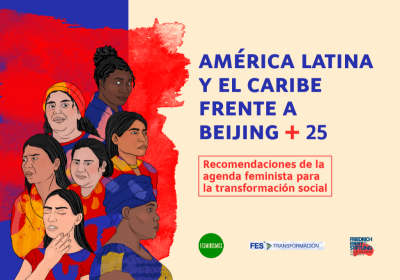Latin America and the Caribbean facing Beijing + 25. Recommendations of the feminist agenda for social transformation.
In 1995, the Fourth World Conference on Women was held in Beijing, China, resulting in the Beijing Declaration and Platform for Action (BPfA). These documents are considered the roadmap -to date- for women's human rights. The BPfA established strategic objectives and actions for governments, civil society and private initiatives in twelve areas of particular concern in terms of inequality: 1) poverty, 2) education and training, 3) health, 4) violence, 5) armed conflict, 6) economy, 7) exercise of power and decision-making, 8) institutional mechanisms, 9) human rights, 10) media, 11) environment, and 12) the girl child. Twenty-five years after the adoption of the PFA, the achievements have been significant; however, there is still a long way to go to ensure that women and girls have a dignified life in a world free of violence. The COVID-19 pandemic and the multiple crises we are currently facing make it even more urgent to advance the feminist agenda, aimed at eradicating all social inequalities and a different way of doing politics. Within the framework of the Equality Generation Forum (EGF), a global meeting convened from March to June 2021 by UN Women and co-chaired jointly by the governments of Mexico and France, which seeks to take stock of the progress and challenges towards gender equality in the world, the Friedrich-Ebert-Stiftung and three of its regional projects in Latin America and the Caribbean (LAC) convened three regional workshops to elaborate and discuss recommendations of the feminist agenda in three key strategic areas for the future of the region: the care economy, social-ecological transformation and peace-building.
- Latin America and the CaribbeanInternational and regional regulationsInternational organizationsComprehensive care systemsCare societyLink



